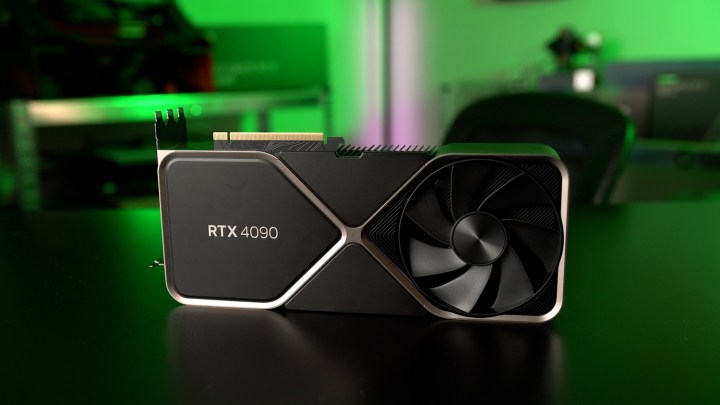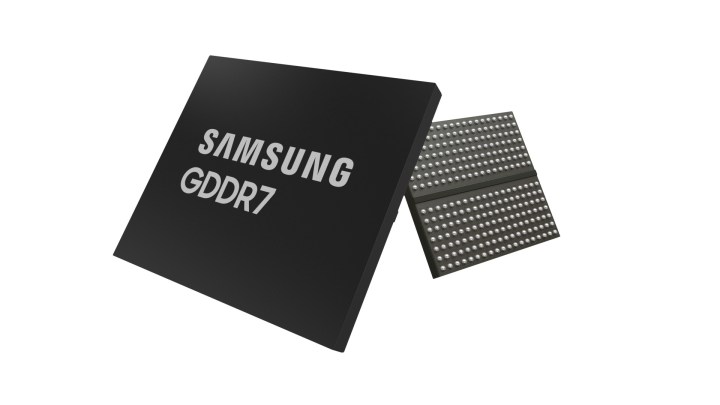
Faster graphics memory is on the horizon. Samsung is set to unveil 37Gbps GDDR7 VRAM, meaning the fastest memory of this type that we’ve seen to date. This advancement could bring some serious gains to next-gen top graphics cards, especially if it manages to be featured in Nvidia’s next-gen RTX 50-series GPUs.
Samsung is holding a session at the five-day 2024 IEEE International Solid-State Circuit Conference, titled “A 16Gb 37 Gb/s GDDR7 DRAM with PAM3-Optimized TRX Equalization and ZQ Calibration,” first spotted by TechRadar. That’s how we know this is happening, as Samsung hasn’t officially announced these faster memory variants yet.
GDDR7 memory is currently a work in progress for Samsung, but also for companies like SK Hynix and Micron. We’ve previously heard of VRAM reaching speeds up to 32Gbps, but now, those speeds are inching much higher with the latest developments.
To achieve these bleeding-edge speeds, Samsung is said to utilize PAM3 and NRZ signaling. PAM3 encoding will allow for higher data transmission rates per cycle, ultimately delivering lower power consumption while upping the memory speed.
VRAM with 37Gbps speeds, once we get there, will mark a significant upgrade over what we’re currently seeing in GDDR6X. For instance, Nvidia’s RTX 4090 provides bandwidth of 1TB/s thanks to its 21Gbps memory across a 384-bit bus. However, next-gen GDDR7 memory will provide that kind of bandwidth across a 256-bit interface when clocked at 32Gbps.
Samsung’s latest 37Gbps invention, when paired with a 384-bit bus, will translate to a whopping 1.79TB/s. That’s nearly double what the RTX 4090 can provide.

However, it has already announced 32Gbps GDDR7 memory in the summer of 2023. Samsung isn’t alone in pushing for faster VRAM — SK Hynix is also reportedly set to announce its own updates, with a session titled “A 35.4Gb/s/pin 16GB GDDR7 with a Low-Power Clocking Architecture and IO Circuitry.”
This is pretty exciting news for the GPU industry, showing us that the future of GPUs will greatly increase bandwidth. However, even though the speculation is that the next-gen graphics cards from AMD and Nvidia will utilize GDDR7, it’s unlikely that these fast memory modules will be available by then.
We might see the RTX 50-series and AMD RDNA 4 launch with GDDR7 but with lower speeds. They’ll still be an improvement over current-gen variants, but 37Gbps VRAM may have to wait until the generation after the one that’s coming next. In other words, we’ll most likely see it arrive in 2026.
Editors’ Recommendations




